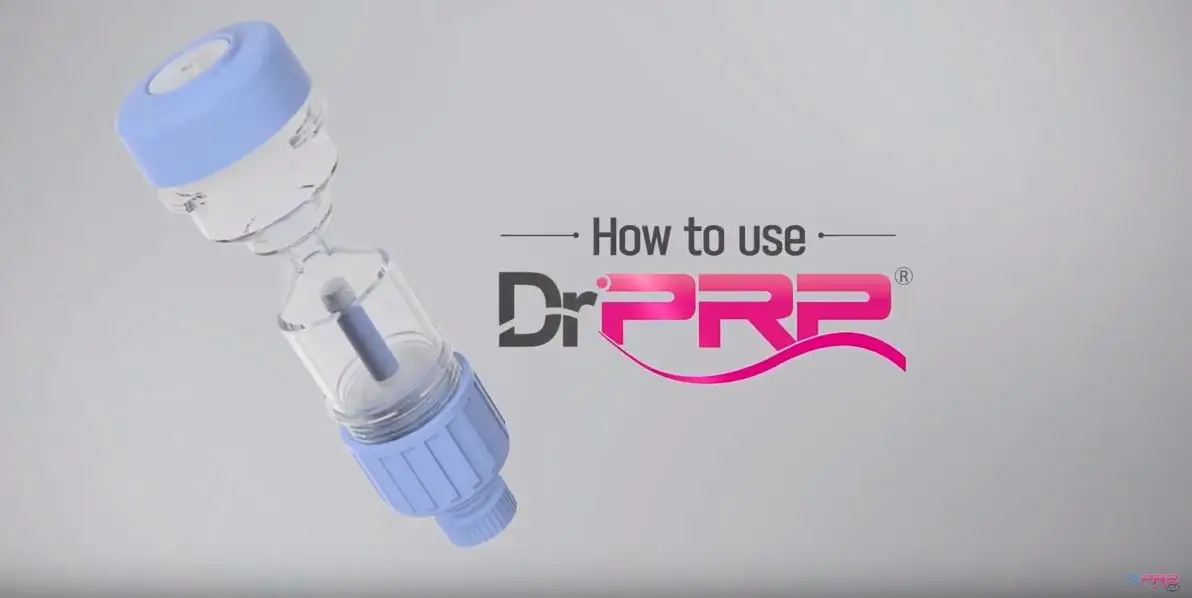| Item | Price | Qty | Total | |
|---|---|---|---|---|
 Loading Cart...
Loading Cart...PRP for Skin Rejuvenation

Skin is the largest organ of the human body and makes up 16% of our total body weight. As the barrier between our external and internal environment, our skin’s appearance can also be an indicator of our overall health.
Signs of age and environmental stress begin to show on our skin by the time we hit our 30s. With age, the following processes occur:
- Reactive oxygen species (ROS) build up as a byproduct of cellular metabolism.
- These ROS damage parts of the cells, including cell membranes, enzymes, and DNA.
- UV light exposure causes thousands of cellular DNA changes each day.
- Environmental insults like pollution and cigarette smoking further accelerate the damage.
- Skin cell proliferation rates decrease.1
- Elastin fibers that give skin its elasticity break down.
- Fat in the subcutaneous layer of skin decreases.
These processes result in visible changes on the skin’s surface, such as:
- Rougher, drier skin
- Thinner skin
- Sagging skin
- Age spots and uneven skin tone
But the structural and functional degeneration of the skin can cause more than just aesthetic concerns. As our body’s protective barrier, this degeneration leaves our skin susceptible to even more troublesome conditions including:
- Eczema
- Contact, allergic, and seborrheic dermatitis/
- Autoimmune diseases with skin manifestations
- Seborrheic keratoses
- Carcinomas and melanomas2
Because it is believed that platelet-rich plasma works by stimulating and strengthening the body’s natural healing response, it has become a powerful therapy for helping to regenerate skin cells and possibly creating a more youthful complexion.
Alternative to Dermal Fillers, Botox, and Laser Therapy
Botox, fillers, and lasers are among the most widely used treatments for skin rejuvenation. But many doctors and patients have concerns about the side effects of these treatment options.
Lasers can cause hyperpigmentation, especially in patients of color. Botox is only effective for wrinkles, and only those wrinkles caused by muscle movement. It’s not effective for wrinkles caused by sagging or lack of plumpness in the skin. Since it’s a neurotoxin, it can also cause weakness or paralysis of nearby muscles.
Dermal fillers have a long list of potential side effects including the formation of nodules under the skin that may be permanent, damage to the facial lymphatic system, disfigurement, and blindness.3,4
As substances foreign to the human body, Botox and fillers can also cause immune reactions ranging from very mild to severe.
Platelet-Rich Plasma to Rejuvenate Skin
Platelet-rich plasma, or PRP, has become a popular alternative therapy for aesthetic skin rejuvenation. Rather than injecting skin with foreign substances like Botox or synthetic fillers, PRP uses the body’s own natural healing process to regenerate damaged skin cells and tissue.
But how does it work? PRP stimulates the body’s innate healing cascade. When we experience an injury, our body responds by delivering a rush of platelet cells. When these platelets are activated, they release several types of growth factors, proteins, and cytokines that play a fundamental role in cell regeneration and tissue healing.
But PRP takes the natural healing response one step further by separating platelets from other blood components and concentrating them. This specially prepared platelet-rich plasma contains 5 to 10 times the concentration of platelets found in whole blood. The concentrated PRP is then delivered into affected areas of the face via injection, stimulating and significantly strengthening the body’s healing response.5
PRP is effective in skin rejuvenation and has been shown to:
- Improve skin tone appearance
- Reduce appearance of fine lines
- Enhance areas that need volume
Compared to saline injections, PRP was shown to better improve the mean optical density of facial collagen and, to a higher degree, reduce wrinkles and roughness.6
PRP can also aid in elastin production. One study in patients with actinic elastosis showed that those treated with PRP injections in their lower eyelid area had increased elastin production and a statistically significant increase in skin elasticity.7
Since PRP is an autologous therapy, using the patient’s own blood product, there is no risk of cross reactivity or immune reaction.
THE PRP PROCESS
To create a platelet-rich plasma preparation, the following steps are performed:
- A small sample of blood is drawn from the patient and injected into the Dr. PRP blood tube.
- The platelets are then separated from the other blood components and their concentration is increased using the Dr. PRP centrifuge and removing some of the plasma.
- The resulting platelet-rich plasma is then injected into and around the affected areas of the patient’s scalp.
- The concentrated growth factors contained in the plasma trigger a mild inflammatory response which effectively jump starts the body’s own natural healing response.
The entire process takes approximately one hour, including preparation and recovery time. For a complete demonstration of each step of the process, view our instructional video.

DR. PRP
The Dr. PRP is an FDA-cleared medical device, holding the esteemed 510K clearance, meticulously designed to prepare patients' blood for PRP therapy quickly and efficiently.
Our patented design creates high-concentration and high-quality platelet-rich plasma that can be used as the physician deems necessary. This can result in tissue regeneration at the injured or diminished site, effectively accelerating normal healing processes.
REACH OUT TO LEARN MOREBENEFITS OF DR. PRP
SAFETY
- Completely closed, sterile system.
- Outside air is blocked with a double safety cap.
- Since the processing is completed within the closed system, there is no risk of the PRP becoming contaminated.
EASY TO USE
- Each kit comes pre-packaged.
- The clear chambers ensure that you can see all the components of the blood sample.
- The buffy coat layer is easily seen in the neck of the device, allowing for precise separation of the components into the type of PRP desired.
- Red Blood Cells can even be eliminated from the final PRP product.
QUICK AND CONVENIENT
- The closed system allows for more treatments in less time.
- Customize your final PRP composition for use in different situations.
- The PRP can and should be administered as soon as it is prepared with our kit – no advanced preparation is needed.
HIGH CONCENTRATION
- One kit holds 20 cc of fluid (3 cc of anticoagulant + 17 cc of whole blood) and produces 4 or more cc of highly concentrated PRP.
- The platelet recovery percentage of Dr. PRP is higher than the minimum recovery percentage of other similar products from our competitors.
CONSISTENT RESULTS
- Platelets require red and white blood cells to survive long-term. Unlike gel separators that capture the platelets within the gel, our kit allows you to accurately create consistently efficient PRP at the concentrations you want.
QUALITY
- Our kit can recover over 90% of platelets from a blood sample to produce the highest quality PRP.
FDA 510K CLEARED
- The kit is now proudly holding the FDA 510K clearance.
PATENTED DESIGN
- According to the ISO 13485, our kit is made with a thorough gamma-ray sterilization system.
- Made only with biocompatibility-certification completed raw materials.
TRAINING & SUPPORT
- One-on-one, in-service training is provided via GoToTraining, FaceTime, or zoom.
- User Manual with photos and descriptions detail how to use your new product, as well as information on PRP and test results.
- Enroll in our Platelet-Rich Plasma CME Certification course where you can learn cosmetic applications of PRP, including the PRP Facial and PRP Facelift.
MARKETING SYSTEM
- Order marketing materials and educational brochures for your patients. These brochures explain various applications of PRP, such as sports medicine and hair regeneration.
- Add your contact information and location to our Directory of PRP Providers.
To view and order Dr. PRP kits and centrifuges, visit our online store.
For questions and to discuss our products in more detail, contact us today at 844-377-7787 (DR- PRP-US).
References
- Farage, Miranda A et al. “Characteristics of the Aging Skin.” Advances in wound care vol. 2,1 (2013): 5-10. doi:10.1089/wound.2011.0356
- Farage, Miranda A et al. “Characteristics of the Aging Skin.” Advances in wound care vol. 2,1 (2013): 5-10. doi:10.1089/wound.2011.0356
- Requena, Luis et al. “Adverse reactions to injectable soft tissue fillers.” Journal of the American Academy of Dermatology vol. 64,1 (2011): 1-34; quiz 35-6. doi:10.1016/j.jaad.2010.02.064
- Funt, David, and Tatjana Pavicic. “Dermal fillers in aesthetics: an overview of adverse events and treatment approaches.” Clinical, cosmetic and investigational dermatology vol. 6 295-316. 12 Dec. 2013, doi:10.2147/CCID.S50546
- “PRP Injections for Pain” American Academy / Association of Orthopedic Medicine. https://www.aaomed.org/Platelet-Rich-Plasma-Injections-for-Pain
- Alam, Murad et al. “Effect of Platelet-Rich Plasma Injection for Rejuvenation of Photoaged Facial Skin: A Randomized Clinical Trial.” JAMA dermatology vol. 154,12 (2018): 1447-1452. doi:10.1001/jamadermatol.2018.3977
- Aust, Matthias et al. “Platelet-rich Plasma for Skin Rejuvenation and Treatment of Actinic Elastosis in the Lower Eyelid Area.” Cureus vol. 10,7 e2999. 18 Jul. 2018, doi:10.7759/cureus.2999


